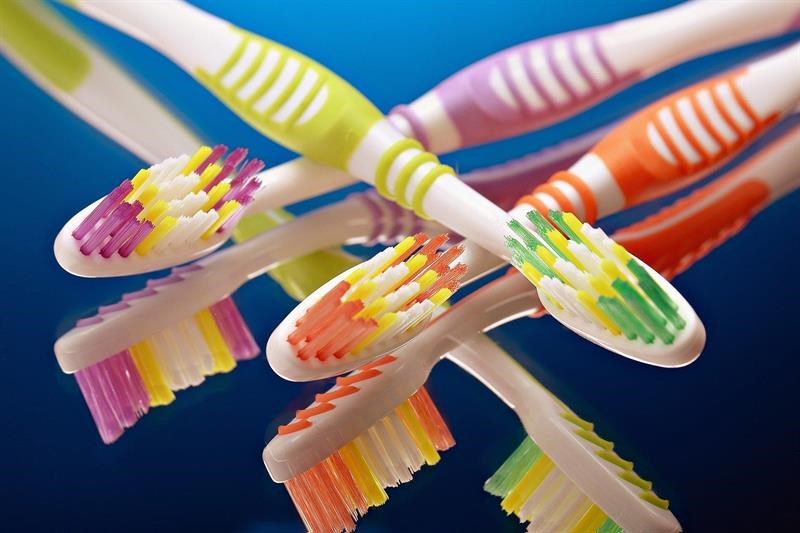COVID-19 warning: Don't store toothbrushes in same pot, warns study
Published: 13/11/2020
Storing toothbrushes in the same container risks transmission of COVID-19.
Two-in-three (66%) people who tested positive for coronavirus and who share a toothbrush container with family members passed the virus on to them, a new study has found.
Researchers investigated whether misuse of dental hygiene, in terms of certain dental habits, could facilitate the spread of COVID-19 among cohabiting individuals.
It found that sharing a toothbrush, toothpaste, the same container for the brush and not changing the brush after the viral process, are all possible routes of cross-contamination of coronavirus.
The study discovered that tongue cleaning was the most effective oral hygiene habit in reducing the spread of the virus.
It monitored hundreds of families over the course of 15 days and found over half (55%) of COVID-positive people who share a toothbrush passed the virus onto other family members in the household.
Latest figures collected by the charity show that around one-in-four (26%) Brits are openly willing the share their toothbrush with others.
Dr Nigel Carter, Chief Executive of the Oral Health Foundation, believes oral hygiene habits like sharing toothbrushes are linked to the transmission of many diseases and should be discouraged.
Dr Carter said: 'There are many hundreds of different bacteria and viruses in our mouths and those sharing a toothbrush could be passing these on to others.
'While this might be something relatively harmless, such as a common cold or cold sore, if the person you are sharing with is infected with viruses like hepatitis B and now coronavirus, these could also be passed on via the toothbrush, with severe health consequences.'
The research published in BMC Oral Health showed the same tube of toothpaste should also not be used between members of the same family, as this is another way of facilitating cross-contamination. Households with a COVID-positive member increase their risk of spreading the virus by almost a third (30%) if they share the same tube of toothpaste.
The study also found that people who disinfect their brush in an antibacterial mouthwash reduce their chances of passing the virus onto family members in the household by more than a third (39%).
Dr Carter advised: 'It is important to store your toothbrush away from others, in a dry place and with the brush head pointing upwards. This allows the bristles to dry faster and hinders the spread of any virus or bacteria that may be lingering on the brush. If you know you are infected, soaking your brush in an antibacterial mouthwash after brushing could also help kill any bacteria and viruses on the toothbrush.'
In the same investigation, more than half (54%) of those who did not change their toothbrush after being tested positive for COVID-19, passed the virus on to other people in their household.
The paper noted that mouth is an early target of infection for COVID-19, especially the tongue, which is a great reservoir of viral germs.
The authors of the study believe that if effectively implemented, hygiene in the home and in daily life has the potential to reduce infection rates and antibiotic consumption.
Tooth brushing, interdental cleaning and tongue cleaning are all deemed essential in order to reduce the presence of the virus in the mouth.
References
Gonzalez‑Olmo et al. (2020) ‘Oral hygiene habits and possible transmission of COVID‑19 among cohabitants’, BMC Oral Health (2020) 20:286. Online at https://doi.org/10.1186/s12903-020-01274-5
Author: Julie Bissett













